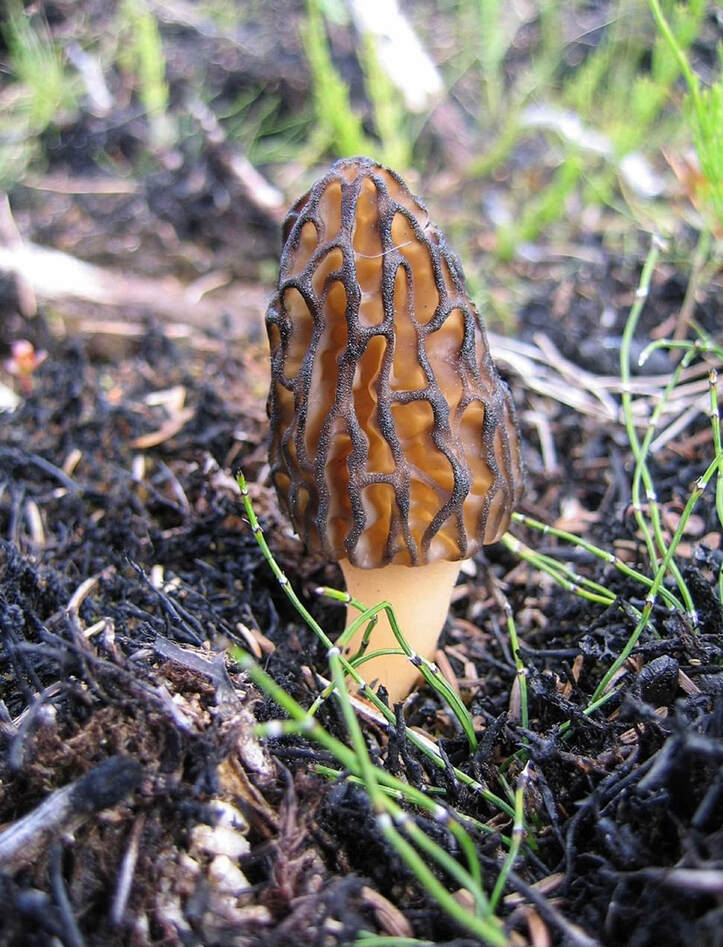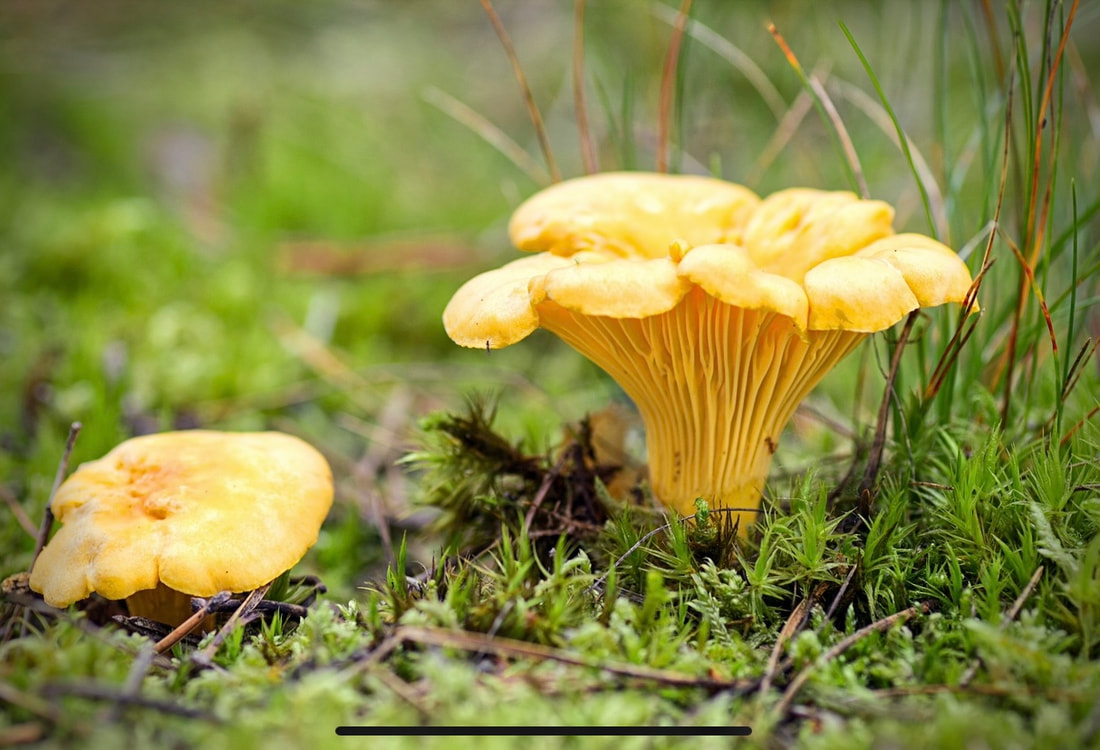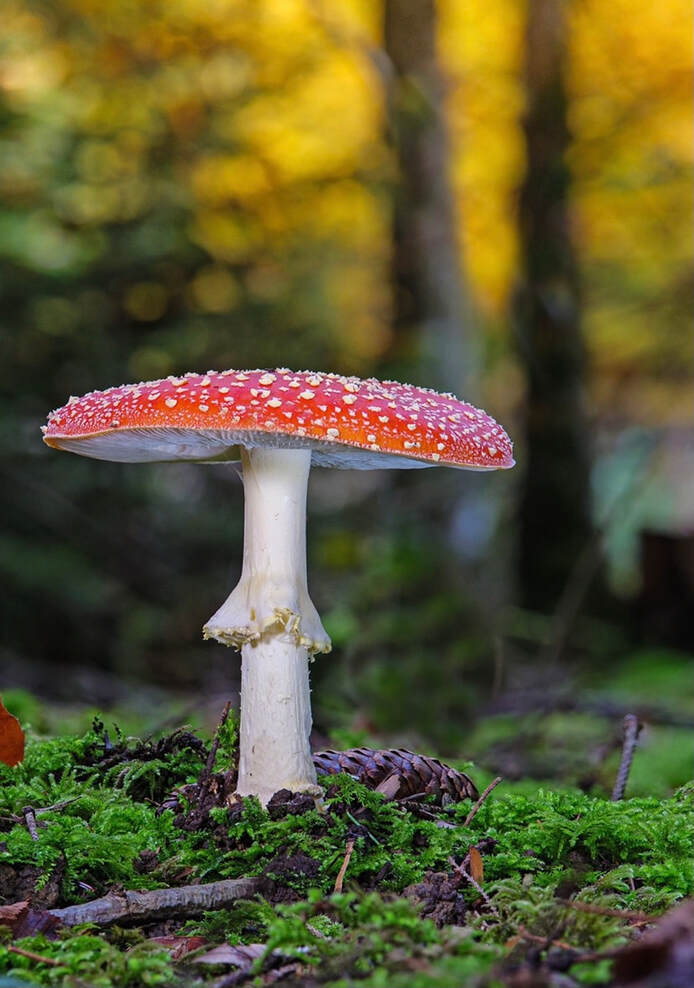By Katherine Brynjolfson, published January 23rd
You might not pay much attention to mushrooms and other fungi, but these organisms are all around us and their impact on our world is significant. Take a closer look at fungi and you might just discover something fascinating and new.
So what is mycology? Mycology is the study of fungi, and for the purposes of this column, I focus mostly on filamentous fungi that produce multicellular fruiting bodies known as mushrooms. You may be wondering what that long string of words means, but it’s simple: these fungi take the shape of a mycelium, a system of hair-like “hyphae” that grows underground like tree roots. The mushroom is not the actual organism but instead its fruiting body, just as the fruiting body of an apple tree is the apple.
Fungi are studied for all kinds of reasons, among them for taxonomy purposes (classification), possible industrial applications, ecological value and role, impact on health (concerning species that pose a threat to human health), agricultural impact (concerning species considered pests) and commercial cultivation (cultivating mushrooms for the table commercially). More recent studies in fungi have led to astounding breakthroughs such as the creation of an environmentally friendly plastic replacement made from mycelium, the discovery of properties in certain fungi that are effective in treating diseases like cancer and PTSD, and the development of a process that uses fungi to clean oil spills. A species of gilled mushroom that fruits underwater, Psathyrella aquatica, has even been discovered, this discovery in itself a direct contradiction to previous mycological assumptions. Researchers have also found that fungal networks of underground mycelia are responsible for storing a significant portion of carbon in the earth’s soil, which indicates that fungi play a larger role in fighting climate change than imagined. The fact is that fungi house a vast wealth of information, and of which we have only just scratched the surface. One can only wonder what we will discover or create with fungi next.
Fungi aren’t appreciated solely for their scientific value, either. Mushrooms are often admired for their natural beauty, but many individuals pursue mushrooms for the table. As many species of gourmet wild mushrooms simply can’t be cultivated commercially, we see not just recreational foragers but also a wave of commercial pickers that make a living off foraging—species such as the matsutake (pine mushroom) and morel fetch a high price in supermarkets and farmers markets alike, and so are highly sought after. There are also those who forage for themselves, and here in BC, choice species are abundant—a good indicator of course for a decent community of “mushroom hunters”, as we call ourselves. I personally love and am most familiar with chanterelles, a type of wild mushroom delicious in various dishes or even just fried in garlic and butter, but there is so much more out there.
If you are interested in foraging, I suggest you research widely and start with beginner species that have no lookalikes. I highly recommend attending workshops and forages, where you can learn directly from others and have them confirm your identification, if you don’t already know someone personally who is willing to show you the ropes. Before consuming any wild fungi, you must be one hundred percent positive of your ID, and I cannot stress this enough. Don’t be stupid. I have seen people mistake completely different species for each other, and even if they really do look the same, you must consider that there may be lookalikes—some edible fungi are only distinguishable from their lookalikes under a microscope! The risk is not worth it. As an old saying goes, “when in doubt, throw it out!”
So, are you ready to delve into the world of mycology? If this looks like something you’d enjoy learning more about, I recommend a few great resources to start off with. Mushrooms of British Columbia (guidebook) by Andy MacKinnon and Kem Luther, All That the Rain Promises and More: A Hip Pocket Guide to Western Mushrooms (guidebook) by David Arora, and Fantastic Fungi (documentary) directed by Louie Schwartzberg are great places to start, but search wide and far. The internet is a great thing, though you should approach it with caution… anyone can post anything, after all. Finally, Vancouver Mycological Society is our local mycological society, and offers members the opportunity to interact with and learn from other fungi enthusiasts as well as access many resources. Now get out there and have some fun, until next time!




